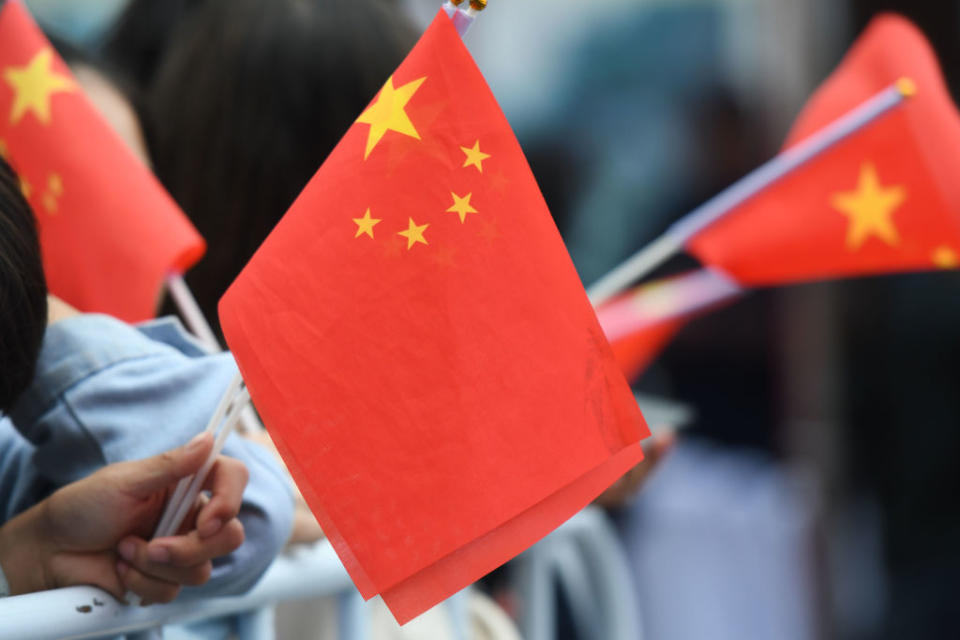'On our terms': PM denies new foreign investment rules target China
Prime Minister Scott Morrison has refuted claims the planned tightening of foreign investment security tests will create further tensions with China.
China and Australia have endured a turbulent and soured relationship in recent weeks after Mr Morrison’s calls for an independent review into the origins of the coronavirus outbreak.
Such a vocal stance prompted calls from Chinese representatives to boycott Australian produce, with four abattoirs in Australia appearing to fall victim to such threats.
Addressing the media on Friday, Mr Morrison and Treasurer Josh Frydenberg revealed reforms into foreign investment coming into Australia which will include a tough new national security test designed to protect critical assets from falling into the wrong hands.

Yet Mr Morrison said the move was not targeting China.
“I don’t believe it should,” he said when asked if the move would further deteriorate Australia’s relationship with China.
“Countries make decisions on their own interests for their own rules and we respect the rules and interests of other countries so I see no reason why that should be the case.
“Australia will always design its foreign investment rules on that basis, as other countries do theirs, so I don't think there is anything extraordinary about that.”
He said any investment into Australia “must be on our terms, on our rules and in our interests”.
Putting Australia’s national interests first
There has been suspicion the move is the latest in an ugly back-and-forth with China, with Mr Morrison and other members of his government warning they will not be bullied by China.
"Our country at the moment faces more foreign interference than we've seen in decades. We want to make sure that we put our national interests ahead of anything else,” Home Affairs Minister Peter Dutton told the Nine network on Friday.
Mr Frydenberg said more than five per cent of the nearly $4 trillion foreign investment in Australia was from China.

“Our foreign investment regulatory framework has always sought to strike a balance between, on the one hand, welcoming and inviting foreign investment to this country, but on the other ensuring that those foreign investment proposals that succeed are in our national interest,” he said.
Australia’s foreign investment rule changes
All foreign investments in sensitive national security businesses will be subject to screening.
Foreign investors will be required to notify the investment review board if they want to start or acquire an interest in a sensitive national security business.
Sensitive national security business is expected to include telecommunications, utilities, energy, defence supply chain and data storage firms
Process for non-sensitive business investment will be streamlined to exempt some companies
The move, which the government hopes to legislate later this year, would also allow for the treasurer to call for a review on investments and even force the sale of assets if a sufficient national security risk was present.
Currently, private foreign investments under $275 million - or $1.2 billion for countries that have free trade agreements with Australia - are not screened.
Mr Morrison also addressed the controversial issue of the sale of Darwin Ports to China.
“There is a lot of misunderstanding about the Darwin port case,’’ he said, revealing the sale of the Darwin Ports by the Northern Territory was done so without the approval of the Commonwealth.
“The wisdom of that decision or otherwise can only be explained by the Northern Territory government at that time which was different to the government we have today.”
He suggested such a sale would not be approved under current legislation.
The announcement from the Morrison government comes two months after restrictions were slapped on foreign investment bids, after Chinese-owned companies in Australia secured tonnes of medical supplies at the height of China’s coronavirus outbreak, shipping them to the Asian powerhouse.
with AAP
Do you have a story tip? Email: newsroomau@yahoonews.com.
You can also follow us on Facebook, Instagram and Twitter and download the Yahoo News app from the App Store or Google Play.




